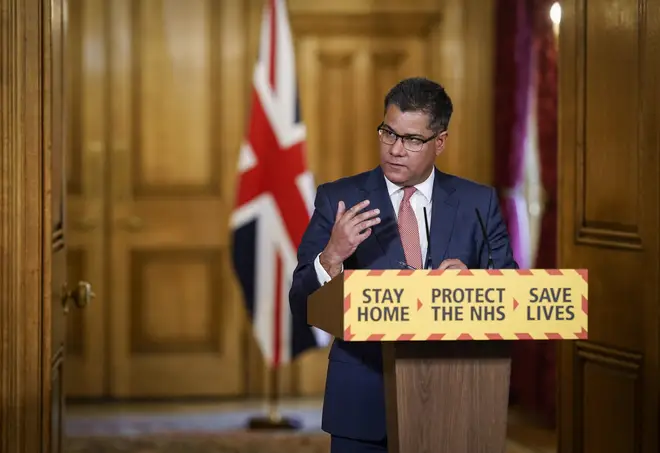
Henry Riley 7pm - 10pm
17 April 2020, 18:47 | Updated: 17 April 2020, 18:57

""We have two strong candidates for the vaccine," taskforce medic says
A medic from the government's vaccine task-force tells Eddie Mair the progress they have made so far.
The government has launched a task force to accelerate the development of a coronavirus vaccine, the Business Secretary Alok Sharma announced.
The group will consist of experts from government, industries, academia and regulators working towards this "single goal" - Sir Patrick Vallance and Professor Jonathan Van-Tam will be leading the efforts.
Professor Robin Shattock is one of the medical experts involved in the vaccines task-force.
"It's going well, we're moving as fast as we possibly can and faster than we've ever been able to move vaccines in to clinical testing before, so that's encouraging," he told Eddie Mair, "but it still takes time to get from that first step to knowing that it's safe and highly effective."
Professor Shattock continued: "I think we're in particularly strong position in the UK because we have two very strong candidates. Our own candidate coming from Imperial College, also the group from Oxford,"
"I think we have good chances of having an effective vaccine in a record time, but that still probably won't be widely available until next year."

Professor Shattock said the vaccine will help us out of the coronavirus pandemic but is only part of the solution, alongside social distancing strategies, and control of peoples' movements.
The task-force will report to the business secretary and the health secretary and they will "support progress across all stages of vaccine development" and "at pace."
Professor Shattock the reason they can move fast is because "technology has really changed and we're able to work from essentially the genetic blueprint of the virus that were published online in January by Chinese scientists, and use that to design our vaccine construct.
"We actually use genetic material to inject into the muscle and get the muscle to manufacture the vaccine instead of needing a large manufacturing plant. This is much more efficient, faster and safer as well."
The professor explained there will be significant international cooperation because the chances of creating a successful vaccine quickly are relatively low so "we need to have a number of shots at goal."